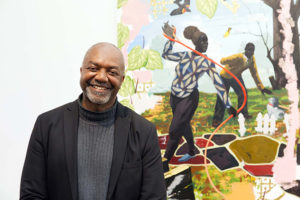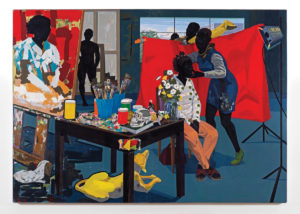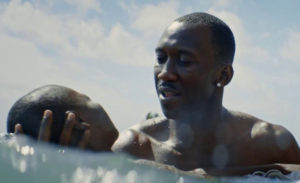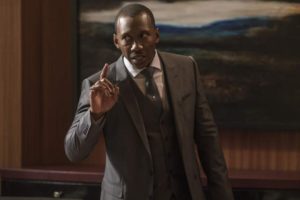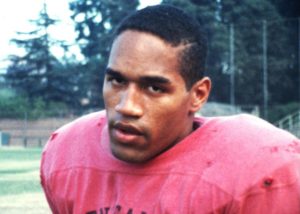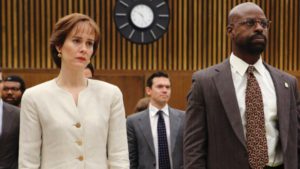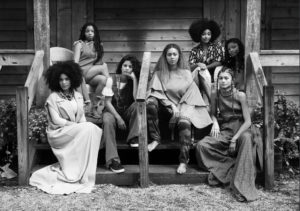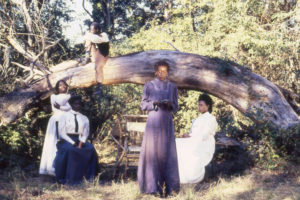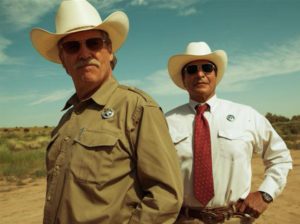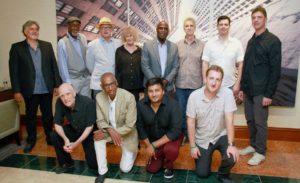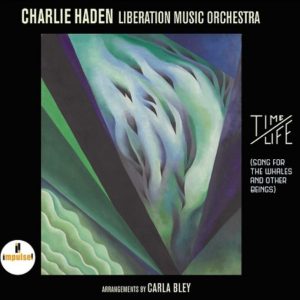Yes, I know. This happened within the last few days, followed closely by this and then, for God’s sake, this. I still say 2016 isn’t, as so many insist, The Worst Year Ever for high-profile deaths; not in my lifetime anyway.
I checked. Consider 1959, whose carnage all but commenced February 3 with Buddy Holly, Richie Valens and J.P. “The Big Bopper” Richardson crushed and shredded by an Iowa plane crash. There followed the deaths, in no particular order, of Billie Holiday, Errol Flynn, Raymond Chandler, George Reeves, Mario Lanza, Frank Lloyd Wright, Lester Young, George C. Marshall, Carl “Alfafa” Switzer, Victor McLaglan, John Foster Dulles, Cecil B. DeMille, Bert Bell, Kay Kendall, Preston Sturges, Eddie “Guitar Slim” Jones, Ethel Barrymore, Boris Vian, Sidney Bechet, Lou Costello…
Some of these deaths were untimely and unexpected, others weren’t. And go sit in a corner if you even think of responding with something like, “Yeah, but these were all OLD people…”
I can easily pull other, similar examples out of my memory bank, especially Bobby Kennedy’s “very mean year” of 1961 (Ernest Hemingway, Patrice Lumumba, Gary Cooper, Booker Little, Barry Fitzgerald, Dag Hammarskjold, Sam Rayburn, Scott LaFaro, Ty Cobb, James Thurber, Maya Deren, Dashiell Hammett, Grandma Moses, Chico Marx, Jeff Chandler, George S. Kaufman, Carl Jung…) spilling right into the following year (Marilyn Monroe, William Faulkner, Ernie Kovacs, Eleanor Roosevelt, Benny Paret, Niels Bohr, Isak Dinesen, Myron McCormick, Charles Laughton, Franz Kline, C. Wright Mills…) and onwards towards 1966 (Lenny Bruce, Walt Disney, Evelyn Waugh, Bud Powell, Montgomery Clift, Frank O’Hara, Bobby Fuller, Richard Fariña…) and 1974 (Duke Ellington, Earl Warren, Jack Benny, Agnes Moorehead, Ivory Joe Hunter, Frank McGee, Cornelius Ryan, Darius Milhaud, Chet Huntley, Bobby Bloom, Frank Sutton, Cass Elliot, Joe Flynn, Charles Lindbergh, Nick Drake, Richard Long, Cyril Connolly, Gene Ammons, Otto Kruger, Jacqueline Susann, Amy Vanderbilt…)
And I could go on like this forever. Do you know why? BECAUSE SO DOES DEATH, PEOPLE. Once you stop thinking of your own era as being, like, so totally unique, it helps make everything around you less frightening.
Repeat after me and say it over and over at night to help you sleep: Years don’t make us better or worse. WE make years better or worse.
With that in mind, I’d like to submit my own random, totally subjective list of the things that made 2016 not suck quite as much as you might otherwise believe. For one thing, it was, despite the prevailing socio-political landscape, a terrific year for African American culture, as many of the attached items will attest. And that will be as true of 2016 ten years from now as it is now, no matter what state the United States will be in by then:
Kerry James Marshall – Along with Wrigley Field, the Billy Goat Tavern and the architectural river cruise, the best part of my late summer trip to Chicago was “Mastry,” a comprehensive exhibition of Marshall’s paintings and drawings at the Museum of Contemporary Art whose breadth and intensity of vision almost brought me to my knees. The exhibition later travelled to New York where it likewise riveted, astonished and inspired millions more. There were many who saw hope with the Cubs’ long-deferred triumph in this year’s World Series. I saw hope and much more in this living Chicago institution.
Atlanta – Donald Glover’s masterly FX series about hip-hop life along the edges validated my long-held suspicions that there was something about its eponymous city that transgresses laws – or at least customs – of time and space. It’s a city where Justin Bieber is magically transformed into the bratty young black man you suspect he’s always wanted to be and where every single plan that an ambitious brother like Glover’s Earn can conceive is chopped up and pureed into unrecognizable, perplexing anomalies. Though he was writing about DJ Shadow this past summer, Greil Marcus could have been talking about Earn and his milieu when he described “a sampler of bits and pieces of dislocation in modern life – finding yourself in the wrong place at the wrong time and realizing you were born there – the textures can seem meretricious, accepting, as if there’s really nothing left to argue against…[But] [b]y its end, yes – you don’t know where you are.”
Mahershala Ali – From Ali’s soon-to-conclude duty as Remy Danton, the lovelorn fixer-for-the-highest-bidder on House of Cards, one sensed coiled steel, contained explosiveness and intuitive graces that this actor could call upon for more daunting challenges. Didn’t take long for him to display these qualities when playing the year’s more conflicted criminals. As Juan, the neighborhood crack dealer in Moonlight, Ali lets you see both the smoldering menace with which he quietly asserts proprietorship over his network of mules and the deep, if enigmatic well of sympathy that allows him to connect with a bewildered, vulnerable boy bullied at home and at school for reasons he can’t fathom. For the smaller screen, Ali brought gray shadows and complex motivations to his portrayal of Cornell “Cottonmouth” Stokes, Harlem crime kingpin and chief nemesis of the bulletproof hero-for-hire in Marvel-Netflix’s Luke Cage. He’s so persuasive at evoking a bad man convinced of his essential goodness that one felt a slow leak oozing out of the whole series after his departure. His dual triumphs make one yearn for more opportunities for Ali to play anti-heroes who can deal with the devil while doing God’s work.
O.J.: Made in America & The People Vs. O.J. Simpson – It doesn’t matter whether you preferred Ezra Edelman’s epochal, illuminating five-part documentary series for ESPN or the Scott Alexander-Larry Karaszewski dramatization which made heroes of erstwhile laughing stocks Marcia Clark (Sarah Paulsen) and Christopher Darden (Sterling K. Brown) without in any way mitigating the scorched-earth genius of Johnnie Cochran (Courtney B. Vance); all of which actors, by the way, won much-deserved Emmys. What both these vastly different approaches to a reverberating crime have in common is what they imply about the glaring inadequacies of day-to-day news coverage. You could argue that all the nuances, subtleties and socio-historical contexts available now to screenwriters and documentarians weren’t as easily accessible to journalists as when the actual Simpson trial was unfolding 22 years ago. But as the last election cycle proved, the 24-hour news cycle, whether on cable or through the Internet, barely bothers even to try thinking such things through. All we’re left with, then and now, are the usual bromides e.g.: It’ll be years before we know what really happened; There’s always more to the story; There’s more here than meets the eye…Blah…Blah…Blah…Whimper.
The Sport of Kings – From the great, relatively forgotten, but still very much alive (at this writing) African American novelist William Melvin Kelley, I recently found out that the word “race” derives from the medieval Italian “razzo,” meaning “any given breed of horse.” I’m betting that C.E. Morgan, a intelligent, imaginative and startlingly perceptive daughter of the Bluegrass State, was aware of this arcane connection when she wrote this novel about a Kentucky horse breeder whose attitudes about race roughly parallel those of the odious John C. Calhoun. He has his reasons, of course, and Morgan’s too conscientious a novelist not to take their full measure, however petty they are and however grievous their impact on others’ lives. His venom afflicts two of those lives. One belongs to his spirited, magnetic daughter who shares his obsession with creating the next Secretariat; the other belongs to a black ex-convict from the mean streets of Cincinnati hired to help train this super horse. I’ve pressed and imposed this novel upon others and yet I’ve been struggling to figure out why. One possible answer just now came to me through David Ulin’s retrospective essay about Double Indemnity for the Library of America’s “Moviegoer” site when he cites a quote from the movie’s coscripter Raymond Chandler: “It doesn’t matter a damn what the novel is about…The only writers left who have anything to say are those who write about practically nothing and monkey around with odd ways of doing it.” Self-serving, I suppose, since Chandler’s reputation while alive was that of an innovative genre writer. Morgan’s novel, aiming for higher ground, isn’t about “practically nothing,” but about many things at once. Yet as with great writers of American noir such as Chandler, Sport of Kings surges and leaps heedlessly into big emotions and grand melodrama, which Chandler believed “was the only kind of writing that I saw was relatively honest.” Ulin pushes these points further by defining them as “conventions of the hyper-real.” I haven’t the time or the space here to get into the specifics, but if you can imagine what base-level 20th century American melodrama, whether practiced by realists or “hyper-realists,” can bring to 21st century issues of race and class, then you will understand why I’ve been bullish on this particular horse opera. I didn’t read Sport of Kings so much as submit to its power and it’s been too long since any new novel did that to me. (I was one of the judges who singled Sport out for the Kirkus Book Prize for fiction. If you can call it up, our citation is quoted here.)
The Arab of the Future, Vol. 2 – Along with Art Spiegelman, Roz Chast, Marjane Satrapi, Joe Sacco and the late Harvey Pekar, cartoonist Riad Sattouf has helped establish the graphic memoir as the most innovative and affecting narrative art form to have emerged in the late 20th century. Given the relentlessly bleak news coming out of Syria in recent years, Sattouf, who once was a regular contributor to Charlie Hedbo, may be providing the most timely and poignant contribution with his autobiographical account of growing up between different cultures. In the first volume, avid, adorably fluffy-haired Riad is shuttled back and forth between France, where his mother Clementine is from, and the volatile Middle East of the 1980s where his Syrian father Abdel-Razek embraces the then-burgeoning Pan-Arab movement. In this second volume, covering 1984 and 1985, Riad’s family settle in his father’s hometown of Ter Maaleh as the country reinvents itself under the dictatorship of Hafez Al-Assad. The little boy must adjust to a new school with its fundamentalist dictates, corporal punishment and the usual highs and lows of socializing with other children, complete with bullying of an especially brutal and bigoted kind. In recounting these and other vicissitudes, Sattouf maintains his wit, balance and equanimity towards all his characters, even at their worst. This is especially true of his father, who is by turns insecure, pompous, clueless and frantic to fit into whatever future his homeland devises for himself and his family. As with its predecessor, the second volume of Arab of the Future makes you wonder how long it’ll be before Abdel-Razek’s dreams come crashing down. But even with that dire prospect, the warmth and wisdom seasoning his son’s rueful memories keep you hoping for the best for the Sattoufs while bracing for the worst.
Weiner — It’s odd how some things can both become dated and gain added significance in only a few months. When I first saw Weiner in the theater, it was early summer, Huma Abedin’s mentor was still well-positioned to be the next president and I came away from the documentary thinking mostly about Abedin’s inscrutably slow-burning gazes at the movie’s main subject who, for all his energy and earnest impulses to do good, came across here as he did everywhere else in the last four years: As an incurable narcissist, stabbing himself, scorpion-like, with his own…um…wretched excesses. I saw the film again on Netflix a couple weeks ago and somehow all that tattle-and-buzz about a man, his penis and social media don’t seem all that important when compared with the brazen lies and mendacity we’ve already seen in play so far from the incoming administration. This time around, what was far more important to me were all those brown and black people occupying the periphery of the action who kept shouting at the TV cameras and their enablers to stop yammering about the man’s dickishness and concentrate on what needs to happen in their neighborhoods to make them better. Wouldn’t it be something if this documentary ended up signifying both the peak and decline of the Age of Gossip and Innuendo? As. If.
Lemonade & Daughters of the Dust – It now seems like forever and a day since Beyoncé dropped her “Formation” video into Super Bowl Week festivities the same way you imagine a visitor from the future, unrecognizable to present-day eyeballs, dropping in on the Iowa Caucus. The 24-hour news cycle chewed its immediate impact to tiny bits until there was little left to the astonishment but empty bluster and gaping bemusement. My own reaction was something akin to: Damn. It almost looks as if Julie Dash directed this badboy! Those of us who cherish Dash’s Daughters of the Dust, her gorgeous 1991 cinematic tone poem set in the turn-of-the-20th-century Georgia Sea Islands have spent the intervening years keeping track of her movements and looking for signs that the movie wasn’t forgotten. And while Dash didn’t direct the “Formation” video, or any of the others emerging from Bey’s daring, insurgent album, Lemonade, there were enough resonances from Daughters to summon a movement to get an enhanced edition of the film out and about to art houses throughout the country. Because Daughters occasioned the first four-star review I ever gave as a Newsday movie critic, this convergence of cultural forces was the happiest I can remember.
Hell or High Water – As I’ve babbled to several people till I bored my own self, I wasn’t at all bullish on movies this year. (The worst of the summer blockbusters, in my opinion, gets its definitive raking-over here by the ever-engaging critical thinkers over at HISHE, who once again outclass what they’re critiquing.) I suppose I’m an incurable aficionado of the mid-to-late-1970s wave of gritty American cinema. And while I think this badlands chase thriller from David Mackenzie wouldn’t necessarily stand out among the glorious products of 40-something years ago, it offered elemental pleasures similar to those movies’: a taut-wire storyline that wastes no time; dry, cool dialogue that likewise goes about its business in real time and no-sweat laconic performances that play changes like a cool jazz combo. Coolest and driest of all is Jeff Bridges in his best performance in years as a Texas Ranger in pursuit of bank robbers aggrieved by the economic unpleasantness of recent years. I also quite liked Chris Pine as one of the robbers, though unlike some reviewers I don’t think he quite steals the movie from Bridges so much as shares the win in the end. If you’ve seen it already, you know there’s added implication in that previous sentence. If not, what the hell are you waiting for?
The Liberation Music Orchestra Redux – It all keeps coming back to Chicago at whose jazz festival this year I saw Carla Bley leading the revived Liberation Music Orchestra founded almost a half-century ago by the late Charlie Haden. He’d spearheaded a restoration of the 12-piece band a few years back, but his failing health prevented him from pressing ahead. Bley, who’d been with the orchestra at its creation as both pianist and arranger, picked up the ball and carried on Haden’s dream of focusing the orchestra’s progressive agenda on ecological issues. The Chicago set included pieces from the album Time/Life (Impulse!) whose playlist includes Bley’s multi-textured tribute to Rachel Carson, “Silent Spring,” and Haden’s own “Song for the Whales.” The timing of their return is all-too auspicious and I have a sinking feeling that global warming may soon end up being among many things they’ll be compelled to make music about.
